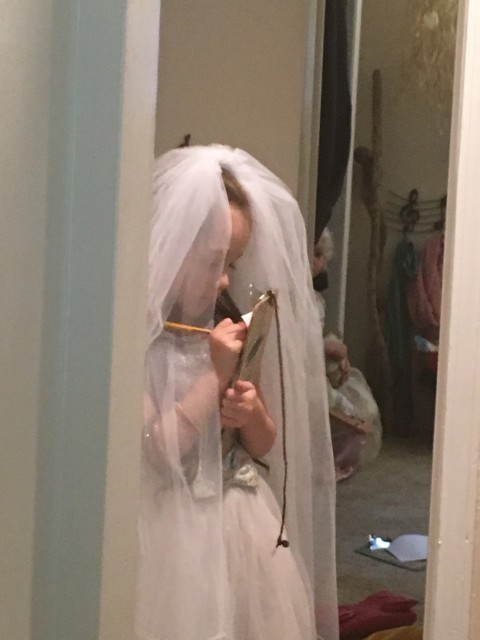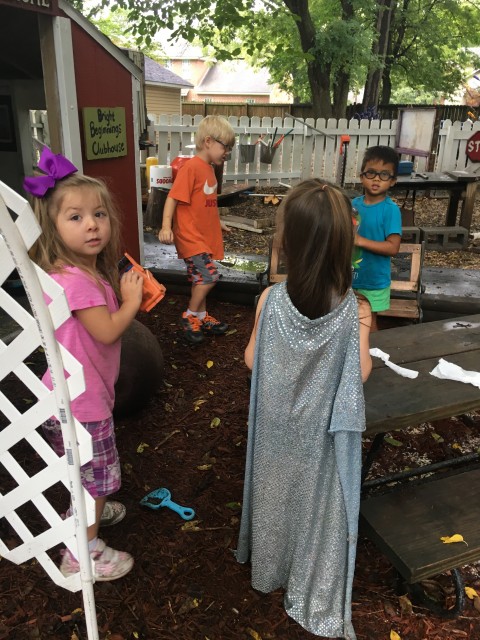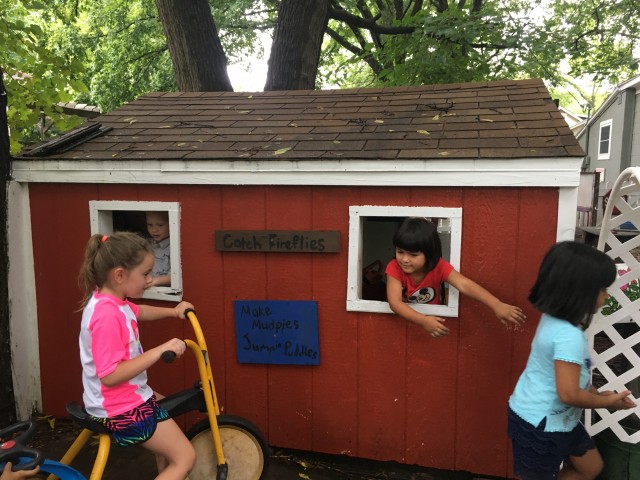Imaginative Play
Imaginative Play
No one has to tell or ” train ” children for imaginative play . They come wired already to pretend . Researchers have stated that there are three ” stages” of play in early childhood.
- Play increasingly detaches from real life . When children first begin imaginative play most times it is related to their life and what they already know. If they have recently went to get their haircut they might pretend they work in a beauty shop. If a child recently went camping he might involve his friends in a camp out made from blankets and sticks.
- Play increasingly becomes less self centered. Have you ever listened to a group of children play and EVERYONE wants to be the MOM or the TEACHER? In the beginning stages of imaginative play the child many times constructs the play around what he or she wants to be.
- Lastly, imaginative play situations become more complex as the child grows and develops. You might walk into a room with 5 children and each child is portraying someone different and there is a huge amazing story to accompany what you see or hear going on.
Whatever stage of imaginative play your child is at each stage is important. So many wonderful social skills emerge as children learn to navigate a scenario with others while playing restaurant. Be assured that we see YOUR restaurant ” manners” each day as children pass out burgers and nuggets through the play house window.

Cognitive skills are the way that children figure things out . It is how they ” think it through or figure it out. ” If we have a store what will we write orders on ? What do we need ? If Sue wants to be the coach and Mark wants to be the coach how can we decide who will ultimately be the coach ? MOST times it boils down to who has the shoes or the tools that match that job but sometimes the children get in great conversations making wise decisions. How can we balance all the dishes on the tray ? I can’t reach the zipper of the dress — how will I get it zipped ?
Many studies show that ‘make-believe strengthens a wide variety of mental abilities, including sustained attention, memory, logical reasoning, language and literacy skills, imagination, creativity, understanding emotions, and the ability to reflect on one’s thinking, inhibit impulses, control one’s own behaviour, and take another’s perspective’ (Berk, 2009).
One of the things that makes me sad when children leave preschool is the fact that they will no longer be allowed to learn while dressed in a flowing sparkly cape .

They will not be allowed to be a magical princess in white fancy shoes that loves to get muddy.

They will not have a backed up drive through as their friends patiently wait to give ” orders ” at a makeshift McDonalds while riding on a yellow tricycle.

Imagination is so important. It takes us places and helps us dream the possibilities. While at Bright Beginnings we will dream. We will imagine. We will honor imaginative play.
